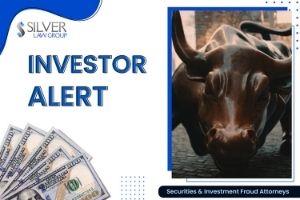
During the same time frame, IFG failed to supervise one broker that churned, or excessively traded, five customer accounts and violated FINRA Rules 3110 and 2010. From September 2022 through April 2024, IFG also made “late and incomplete responses” to a FINRA Rule 8210 request violating FINRA Rules 8210 and 2010.
The Excessive Trading Reports
The firm’s system for monitoring and preventing excessive trading included WSPs (written supervisory procedures) that gave responsibility for reviewing the firm’s Excessive Trading Report to compliance and supervisory staff. While supervisory staff did oversee the representatives’ actions, compliance staff did not. This led to an unclear division of responsibilities that meant detecting and stopping excessive trading that could lead to investor losses.
IFG should have used the Excessive Trading Report to find problems but used its internal alert system. However, this system only looked at the number of trades and fees in an account over 90 days. After someone checked an alert and noted it, the system didn’t create any new alerts for the account for six months, regardless of any activity that should have been flagged. The alerts would also occasionally stop even if none of the firm’s staff checked them.
At the same time, IFG failed to instruct their staff on how to review the alerts, or when to act based on what they found. The firm also failed to use tools that could detect excessive trading, such as:
- The cost-to-equity ratios show how much an account needs to grow to cover trading costs
- Turnover rates show how often investments in an account are bought and sold
When the firm’s staff did review these alerts, they frequently closed them without investigating further to see if the trading was in the customer’s best interest. This meant that instances of churning and excessive trading were missed and possibly harmed those customers.
FINRA’s Request For Information
FINRA sent a request to IFG for information in August of 2022. This request included documentation of all its supervisory review of all exceptions, alerts, and other documents to supervise excessive trading, active accounts, and excessive commissions for customers of the representative.
The firm responded in September of 2022 that FINRA’s request didn’t include the Excessive Trading Reports that came from IFG’s clearing firm. It also didn’t include any excessive trading alerts that no longer appeared in the firm’s system. In response, FINRA sent several follow-up requests to IFG to determine how complete their response was.
In April of 2024, following multiple discussions with FINRA, IFG contacted their service provider for these alerts. It was then that IFG realized that these alerts could and had stopped appearing even without being cleared. The firm then made a complete production of all the alerts that stopped along with the production of its Excessive Trade Reports.
AWC Letter and Sanctions
IFG signed a letter of Acceptance, Waiver & Consent (AWC) on 9/5/2024, and it became effective on 9/2e/2024. In it, IFG agreed to censure and a fine of $500,000. Additionally, IFG has 90 days to remediate the problems in this agreement. Once the problems are resolved, a registered senior manager from IFT must certify in writing:
- The problems in the agreement have been resolved, along with a detailed explanation and written documentation.
- There is a new system to properly supervise the firm’s employees.
- The system follows the rules set out by Regulation Best Interest and FINRA.
The letter with documented proof should be sent to Jessica Moran at FINRA’s Boston office, and a copy to FINRA’s Enforcement Department.
Should the firm need additional time, they can request it but must have a good reason. IFG must also provide any additional proof should FINRA request it.
A footnote indicates that the defrauded customers have already received restitution or will receive restitution through a separate agreement.
Did IFG Churn Your Account?
Silver Law Group represents investors in securities and investment fraud cases. Our lawyers are admitted to practice in New York and Florida and represent investors nationwide to help recover investment losses due to stockbroker misconduct. If you have any questions about how your account has been handled, call to speak with an experienced securities attorney. Most cases are handled on a contingent fee basis, meaning that you won’t owe us until we recover your money for you. Contact us today at (800) 975-4345 and let us know how we can help.
